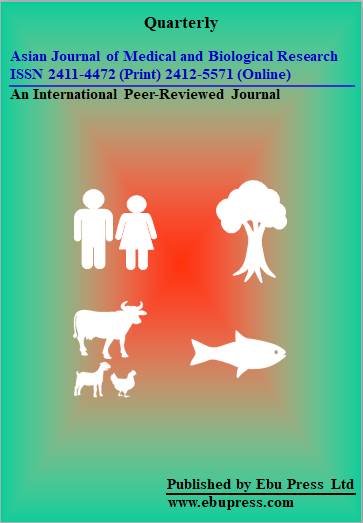Md. Shafiqul Islam, Md. Shakil Islam, Md. Ashraful Alam and Saiful Islam
Abstract
PDF
Antibiotic therapy is essential in human and veterinary medicine, but resistance and prolonged exposure to antibiotic residues pose significant risks to health. This study investigated the long-term effects of amoxicillin residue on Swiss Albino male mice. Mice (n=20) were divided into control (no antibiotics) and treated (amoxicillin at the rate of 10 ppm in drinking water for one year; MRL 0.01 ppm) groups. Body weight, physical condition, immune status, blood parameters, ALT and AST enzyme levels, histopathology and residue accumulation in organs was examined. Antibiotics-treated mice exhibited significant weight gain (P<0.05~0.01) from the third month, peaking in the 10th month before declining. Treated mice appeared robust yet lethargic. Blood analysis showed decreased lymphocyte and neutrophil count and while no significant changes were observed in monocyte, eosinophil and basophils counts. ALT and AST levels were elevated but not statistically significant. Histopathology revealed liver steatosis, glomerular atrophy, and inflammatory cell infiltration in the liver and kidneys. TLC analysis confirmed Amoxicillin residue accumulation in the liver, kidneys, spleen, intestine, and muscles. The findings suggest that long-term exposure to antibiotic residues may adversely affect health and highlight the need for controlled antibiotic use to prevent potential hazards.



